Introduction
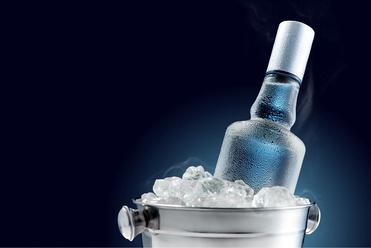
Vodka is a versatile and widely consumed alcoholic beverage known for its neutral taste and ability to blend well with other ingredients. It is commonly used as a base for a variety of cocktails or simply enjoyed straight. One question that often arises is whether vodka can go bad. While vodka has a long shelf life due to its high alcohol content, it is important to understand the factors that can affect its quality over time. In this article, we will explore the concept of expiration for vodka, signs of expired vodka, as well as the shelf life of both unopened and opened vodka.
What Is Vodka?
Vodka is an alcoholic beverage that is widely known for its neutral taste and versatility in mixing with other ingredients. It is a distilled spirit that is typically made from fermented grains, such as wheat, rye, or potatoes. Vodka has a high alcohol content, usually around 40%, which gives it the ability to preserve its quality over extended periods of time. Its clear, colorless appearance and smooth texture make it a popular choice for cocktails or enjoying straight. Vodka is often a staple in bars and households due to its ability to blend well with various flavors and its wide range of uses in cocktails and recipes.
Factors Affecting The Shelf Life Of Vodka
Exposure to Light and Heat: Vodka should be kept away from direct sunlight and heat sources as these factors can accelerate the oxidation process, leading to a decrease in quality and flavor over time.
Air Exposure: Once vodka is opened, it comes into contact with oxygen, which can gradually alter its taste and aroma. It is important to seal the bottle tightly after each use to minimize air exposure and preserve the vodka’s freshness.
Contamination: Proper handling and storage are crucial to prevent contamination, which can occur when outside substances are introduced into the vodka. Keeping the bottle sealed and stored in a clean and dry environment helps maintain its quality.
Quality of Ingredients: The quality of the ingredients used in vodka production can also affect its shelf life. Premium vodkas made from high-quality grains or potatoes generally have a longer shelf life compared to lower-quality options.
Overall, by considering these factors and practicing proper storage techniques, vodka can maintain its quality and shelf life for an extended period.
Does Vodka Expire?
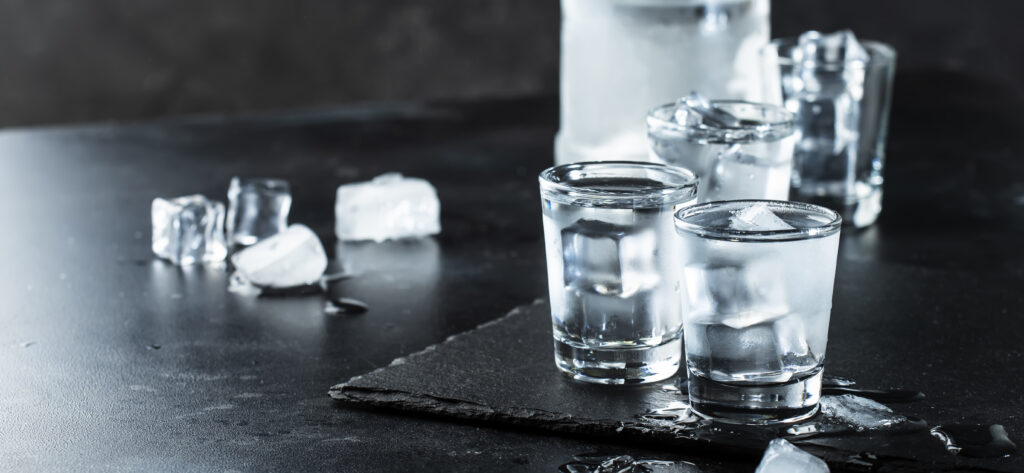
Vodka does not technically expire. Due to its high alcohol content, vodka can remain safe to consume indefinitely. However, its taste and quality may deteriorate over time. It is important to note that while unopened vodka does not expire, opened vodka can lose its freshness and flavor. This is because once vodka is exposed to air, it can undergo oxidation, which can affect its taste and aroma. It is recommended to consume opened vodka within a reasonable timeframe to enjoy its optimal flavor. Proper storage and handling can help prolong the shelf life of opened vodka.
Understanding The Concept Of Expiration
Expiration refers to the point at which a product, in this case, vodka, is no longer suitable for consumption or use. While vodka does not technically expire due to its high alcohol content, the concept of expiration comes into play when considering the deterioration of its taste and quality over time, especially once the bottle has been opened. It is important to note that expiration dates on vodka bottles are mainly used for quality control and to ensure optimal flavor rather than indicating the safety or spoilage of the product.
Signs Of Expired Vodka
Signs that vodka has expired include changes in color, taste, and aroma. If the vodka starts to turn yellow or brown, it may indicate that it has gone bad. Additionally, if the smell becomes unpleasant or resembles nail polish remover, it is a clear sign of spoilage. Expired vodka may also have a harsh or bitter taste. It is important to note that consuming expired vodka is not harmful but it may not provide the desired taste and experience. To ensure the best quality, it is recommended to discard expired vodka and replace it with a fresh bottle.
Shelf Life Of Unopened Vodka
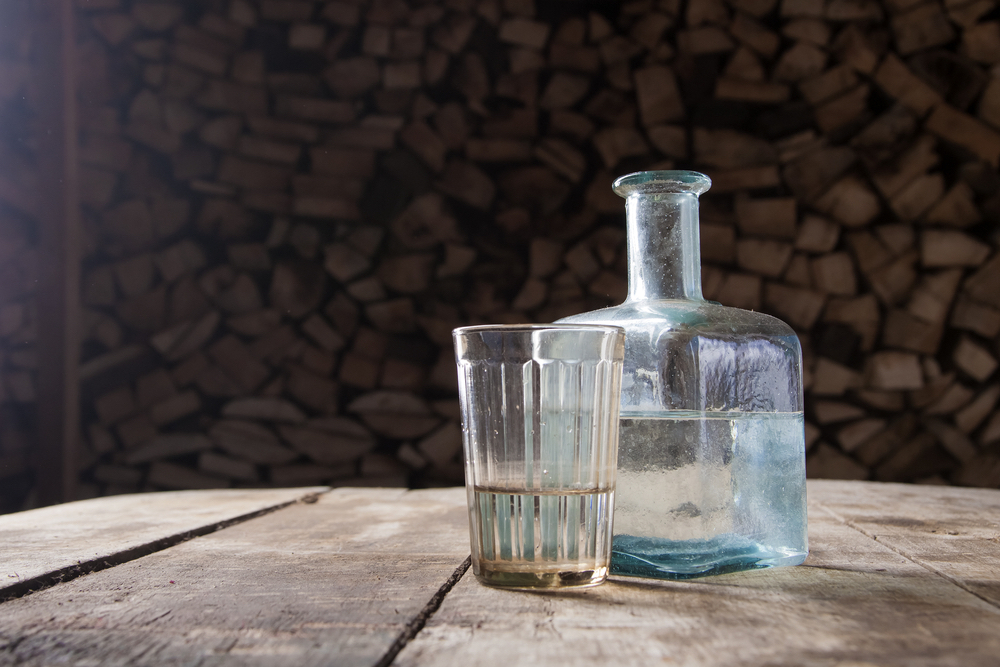
Unopened vodka has a remarkably long shelf life. Due to its high alcohol content and low presence of additives, unopened vodka can be stored for an indefinite period in a cool and dark place. The flavor and potency of vodka are typically at their peak when consumed within 30 to 50 years of production. However, it is important to note that vodka doesn’t technically expire, and even if it exceeds the recommended timeframe, it is still safe to consume. For the best experience, it is advisable to consume unopened vodka within the suggested time frame.
How Long Can Unopened Vodka Last?
Unopened vodka has an impressively long shelf life. Due to its high alcohol content and minimal additives, unopened vodka can last indefinitely when stored in a cool and dark place. While vodka producers usually recommend consuming it within 30 to 50 years for optimal flavor and potency, unopened vodka doesn’t technically expire. So, even if it exceeds the suggested timeframe, it is still safe to consume. However, for the best taste experience, it is advisable to consume unopened vodka within the recommended time frame.
Proper Storage Of Unopened Vodka
Proper storage of unopened vodka is essential to maintain its quality over time. Here are some guidelines to follow:
- Keep it in a cool place: Store unopened vodka in a cool and dark area, away from direct sunlight. Heat can degrade the alcohol and affect its taste.
- Seal the bottle tightly: Ensure the bottle is tightly sealed to prevent air from entering. Oxygen can deteriorate the vodka, leading to changes in flavor.
- Avoid temperature fluctuations: Fluctuations in temperature can cause the vodka to expand and contract, potentially affecting its quality. Keep it in a consistent temperature environment.
- Keep it upright: Store the bottle in an upright position to prevent the alcohol from interacting with the cork or cap, which could alter the taste.
By following these storage practices, you can maximize the shelf life of unopened vodka and enjoy its optimal flavor when consumed.
Shelf Life Of Opened Vodka
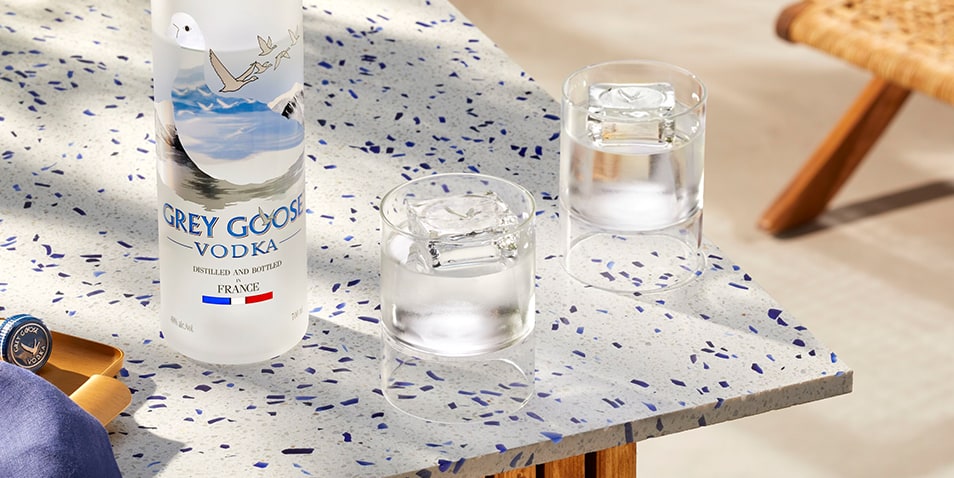
Once a bottle of vodka has been opened, its shelf life will start to decrease. However, if stored properly, opened vodka can still last for several years. The high alcohol content of vodka helps to preserve its freshness and prevent microbial growth. To extend the shelf life of opened vodka, it is important to keep it tightly sealed and stored in a cool, dark place away from direct sunlight. Additionally, avoiding temperature fluctuations and keeping the bottle upright will help maintain its quality. By following these precautions, you can enjoy opened vodka for a long time without compromising its taste and quality.
How Long Does Opened Vodka Stay Good?
Opened vodka can stay good for several years if stored properly. The high alcohol content in vodka helps preserve its freshness and prevent microbial growth. However, its shelf life may gradually decrease after opening. It is important to keep the bottle tightly sealed and store it in a cool, dark place away from direct sunlight. By following these precautions, opened vodka can maintain its taste and quality for an extended period of time. Remember to check for any signs of spoilage before consuming.
Tips For Extending The Shelf Life Of Opened Vodka
Here are some tips to help extend the shelf life of opened vodka:
- Keep the bottle tightly sealed: Make sure to always seal the bottle tightly after each use to prevent air from entering and oxidizing the vodka.
- Store in a cool, dark place: Exposure to heat and light can degrade the quality of the vodka. Store it in a cool and dark location, such as a basement or pantry.
- Avoid temperature fluctuations: Fluctuations in temperature can cause the vodka to expand and contract, leading to a loss of flavor and quality. Keep the vodka in a stable environment to maintain its freshness.
- Use a pour spout or dispenser: Pouring the vodka directly from the bottle can introduce contaminants and increase the risk of spoilage. Using a pour spout or dispenser can help maintain the cleanliness of the vodka.
By following these tips, you can ensure that opened vodka stays good for an extended period of time.
Does Vodka Go Bad If Stored Improperly?
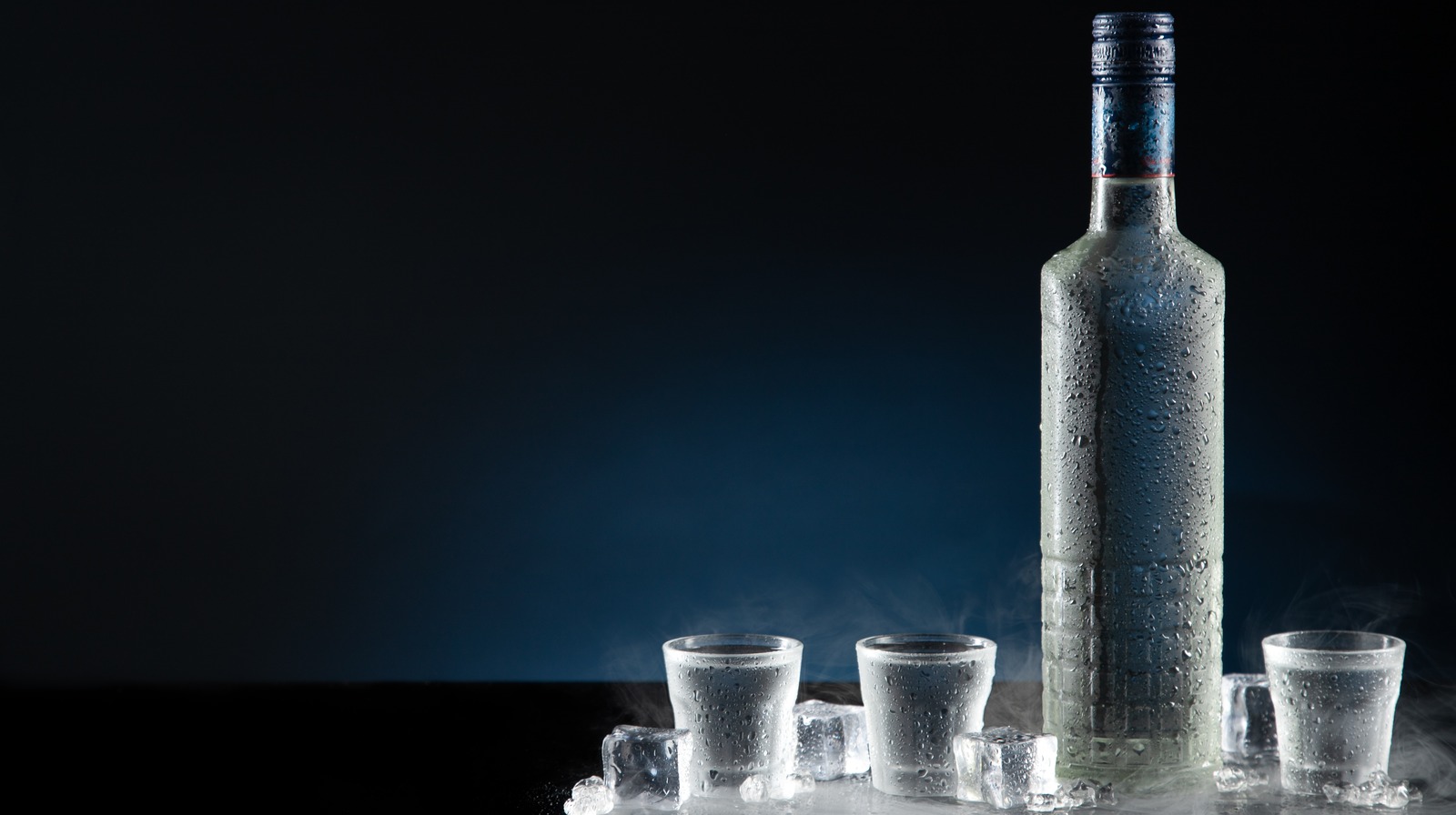
Improper storage can have a negative impact on the quality and shelf life of vodka. If vodka is stored improperly, such as being exposed to heat, sunlight, or fluctuating temperatures, it can lead to the degradation of the vodka’s flavor and quality. Additionally, if the bottle is not tightly sealed or the vodka is not stored in a cool and dark place, it can increase the risk of contamination and spoilage. Therefore, it is important to store vodka properly to maintain its freshness and prevent it from going bad.
Effects Of Improper Storage On Vodka
Improper storage of vodka can have detrimental effects on its quality and taste. Exposing vodka to heat, sunlight, or fluctuating temperatures can cause the degradation of its flavor and aroma. Additionally, if the bottle is not tightly sealed or the vodka is not stored in a cool and dark place, it can increase the risk of contamination and spoilage. These factors can lead to a decrease in the overall quality of the vodka and result in a less enjoyable drinking experience. Therefore, it is crucial to store vodka properly to maintain its freshness and prevent it from going bad.
Storing Vodka Properly For Long-lasting Freshness
To store vodka properly and maintain its long-lasting freshness, it is important to follow a few guidelines:
- Keep it in a cool and dark place: Store the vodka at a consistent temperature, preferably between 32 to 70°F (0 to 21°C), away from direct sunlight or heat sources.
- Seal the bottle tightly: Ensure that the cap or cork is tightly sealed to prevent air from entering and oxidizing the vodka.
- Avoid temperature fluctuations: Fluctuating temperatures can affect the quality of the vodka. It is best to avoid storing it in places where the temperature changes rapidly, such as near a stove or window.
- Use airtight containers: If you have opened a bottle of vodka but only consumed a portion, transfer the remaining vodka into a smaller, airtight container to minimize the exposure to air.
By following these storage practices, you can help maintain the freshness and quality of your vodka for a longer period.
Conclusion

In conclusion, vodka has an incredibly long shelf life, both when unopened and opened. It does not usually expire, as it has a high alcohol content that helps preserve its freshness. However, it is important to note that the taste may deteriorate over time, especially if it is not stored properly. By following the recommended storage guidelines and using common sense, such as avoiding extreme temperatures and tightly sealing the bottle, you can ensure the longevity and quality of your vodka. Remember to always check for any signs of spoilage before consuming. So, rest assured that your vodka can last for a long time if stored correctly.
Summary Of Key Points Discussed
In conclusion, vodka has an incredibly long shelf life, both when unopened and opened. It does not usually expire, as it has a high alcohol content that helps preserve its freshness. However, it is important to note that the taste may deteriorate over time, especially if it is not stored properly. By following the recommended storage guidelines and using common sense, such as avoiding extreme temperatures and tightly sealing the bottle, you can ensure the longevity and quality of your vodka. Remember to always check for any signs of spoilage before consuming. So, rest assured that your vodka can last for a long time if stored correctly.
How To Determine If Vodka Has Gone Bad
Determining if vodka has gone bad is fairly straightforward. Here are a few signs to look out for:
- Off smell: If the vodka has a strong, unpleasant odor, it’s likely gone bad. It may smell like paint thinner or may have a sour or rancid smell.
- Cloudy appearance: Vodka should be clear and transparent. If you notice any cloudiness or sediment in the bottle, it may indicate spoilage.
- Strange taste: Vodka should have a smooth and clean taste. If you detect any off or funky flavors, it’s a sign that the vodka has deteriorated.
If you encounter any of these signs, it’s best to discard the vodka rather than consume it. Trust your senses to ensure you’re enjoying a fresh and high-quality drink.
FAQ: Can Vodka Go Bad?
Q: Does vodka have an expiration date?
A: Vodka, if stored properly, does not have a specific expiration date like perishable goods do. It can last indefinitely if unopened.
Q: Can vodka go bad after opening?
A: Once a bottle of vodka is opened, the alcohol content prevents the growth of bacteria or other organisms that can spoil the liquid. Therefore, vodka can be considered safe to consume even after opening, as long as it has been stored properly and remained sealed.
Q: How should vodka be stored to maintain its quality?
A: To ensure the longevity and quality of vodka, it is best to store it in a cool and dark place away from direct sunlight. Fluctuations in temperature can affect the taste and overall quality, so a consistent storage environment is preferable. Make sure the bottle is tightly sealed to prevent any evaporation.
Q: What are the signs that vodka has gone bad?
A: Vodka rarely goes bad, but some signs of a deteriorated vodka include changes in smell, taste, or appearance. If you notice a distinctly off-putting odor, unusual taste, or any visible particles or cloudiness in the vodka, it is best to discard it.
Q: Can vodka freeze and still be safe to consume?
A: Vodka has a relatively low freezing point, so it can freeze under very cold temperatures. However, this does not affect its quality or safety. Once the vodka is brought back to room temperature, it can be consumed as usual.
Q: Can flavored vodka go bad faster than regular vodka?
A: Flavored vodka contains natural or artificial additives that might have their own shelf life. Over time, these ingredients can lose their potency, resulting in a less intense flavor. However, as long as the vodka is stored properly, it is unlikely to spoil or become unsafe to consume.
Q: Can mold grow in vodka?
A: Due to its high alcohol content, vodka is inhospitable for mold growth. However, if the bottle is contaminated with mold before consumption (e.g., a dirty glass was used), it can introduce mold spores into the vodka. It is advisable to avoid drinking vodka if there are visible signs of mold.
Q: Can drinking spoiled vodka make you sick?
A: In general, consuming a small amount of spoiled vodka probably won’t cause severe illness. However, if it has an unpleasant taste, odor, or visible signs of contamination, it is always safer to discard it. If you experience any unusual symptoms after consuming vodka, it is best to consult a healthcare professional.
Remember, if you have any concerns about the quality or safety of your vodka, trust your instincts and dispose of it rather than risking consumption.

Frog Bear & Wild Boar is a vibrant and dynamic establishment located at 343 N Front St. in the heart of the Arena District in Columbus, OH. Our story began with a passion for creating an inviting and lively environment where friends, families, and colleagues can come together to enjoy great food, refreshing drinks, and fantastic entertainment. Founded on the principles of warm hospitality, delicious cuisine, and a commitment to community, Frog Bear & Wild Boar has become a beloved gathering place for locals and visitors alike. Our dedication to delivering exceptional experiences has earned us a reputation for being a go-to destination for memorable outings and special occasions.